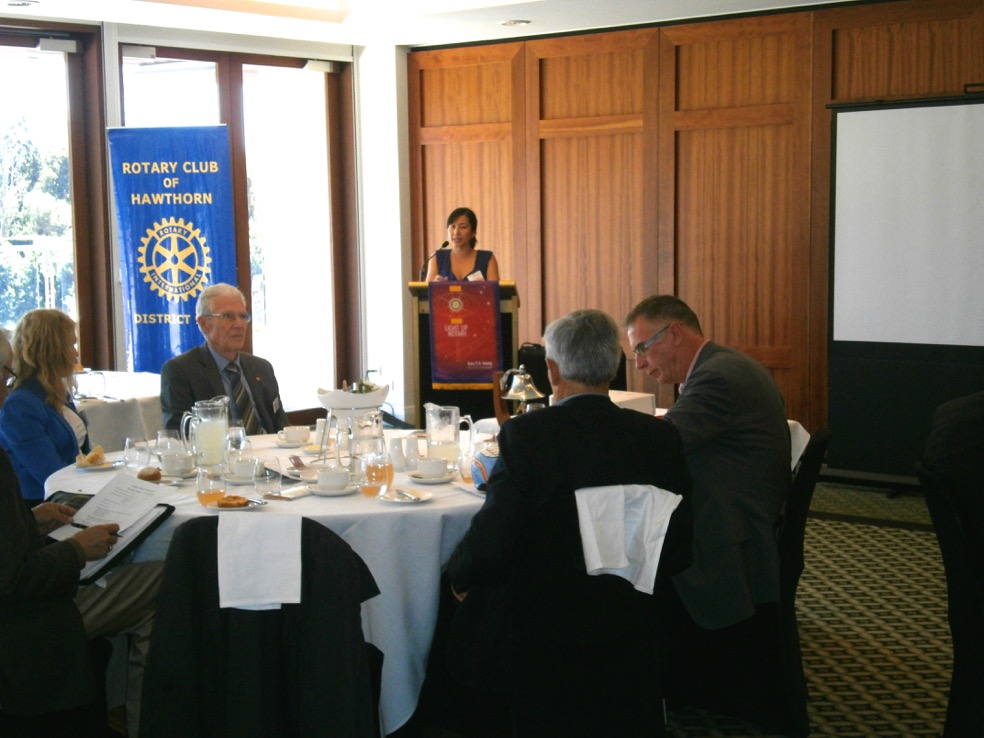Lien Trinh...Rotary Foundation Scholar
Posted
on Nov 11, 2014

That's Lien at the podium.
It is wonderful to see how Australia has been enriched by refugees over the years.
Yet again that was demonstrated by last meeting's guest speaker Lien Trinh, originally from Vietnam and a recipient of a Rotary Foundation Global Scholarship. With that support she studied in London for a Masters Degree in public health.
Introduced by David Rush we learnt that she qualified first in optometry but has had a diverse work experience with time in Port Moresby, Vietnam, Sri Lanka and in the Northern Territory with indigenous communities. Her focus and interest extended beyond basic optometry to issues concerned with the broader health of the people in these places and communities.
Lien gave us a snap shot of three issues which had been brought to her attention in her studies in public health.
First, with a fascinating recall of the HIV/Aids onset she highlighted the impact and power of the public and activist groups to bring about improvement in public health. With HIV it was the various activist groups in the Western countries which had eventually brought about serious efforts in tackling the disease. In the early years, governments and health authorities in those countries there had not responded strongly perhaps because of intrinsic moral values. Even today in Africa the absence of such advocates has seen the HIV problem there addressed with less rigor.
The Tobacco industry and the anti smoking campaigns was a second topic for mention. Lien reminded us of the battle in Australia and like countries to discourage the population from smoking and the counter efforts of the industry to promote it. Australia's success in reducing smoking and our approach arguably leads the world and has been copied by many. Yet lesser developed countries see a proliferation of the habit. We were reminded that in such countries however the industry associated with tobacco can be an important economic factor and so as in many matters of public health policy making is not clear cut nor can be dogmatic.
Having worked in various indigenous communities gave Lien special interest to explore in her studies the issue whereby a new unknown culture imposes with good intent rules for health care in those communities. This practice raises matters of acceptance, the ignoring of different cultures within the indigenous areas, and one blanket policy for all. The experiences in Australia are evidence of these problems and indeed Lien felt from her experiences alone she saw that our efforts were producing unsatisfactory outcomes. The friction, on public health matters especially, between the "new" and "old" cultures still persists---Lien acknowledged that there was no easy solution.
The audience thanked Lien for her fine and interesting address.